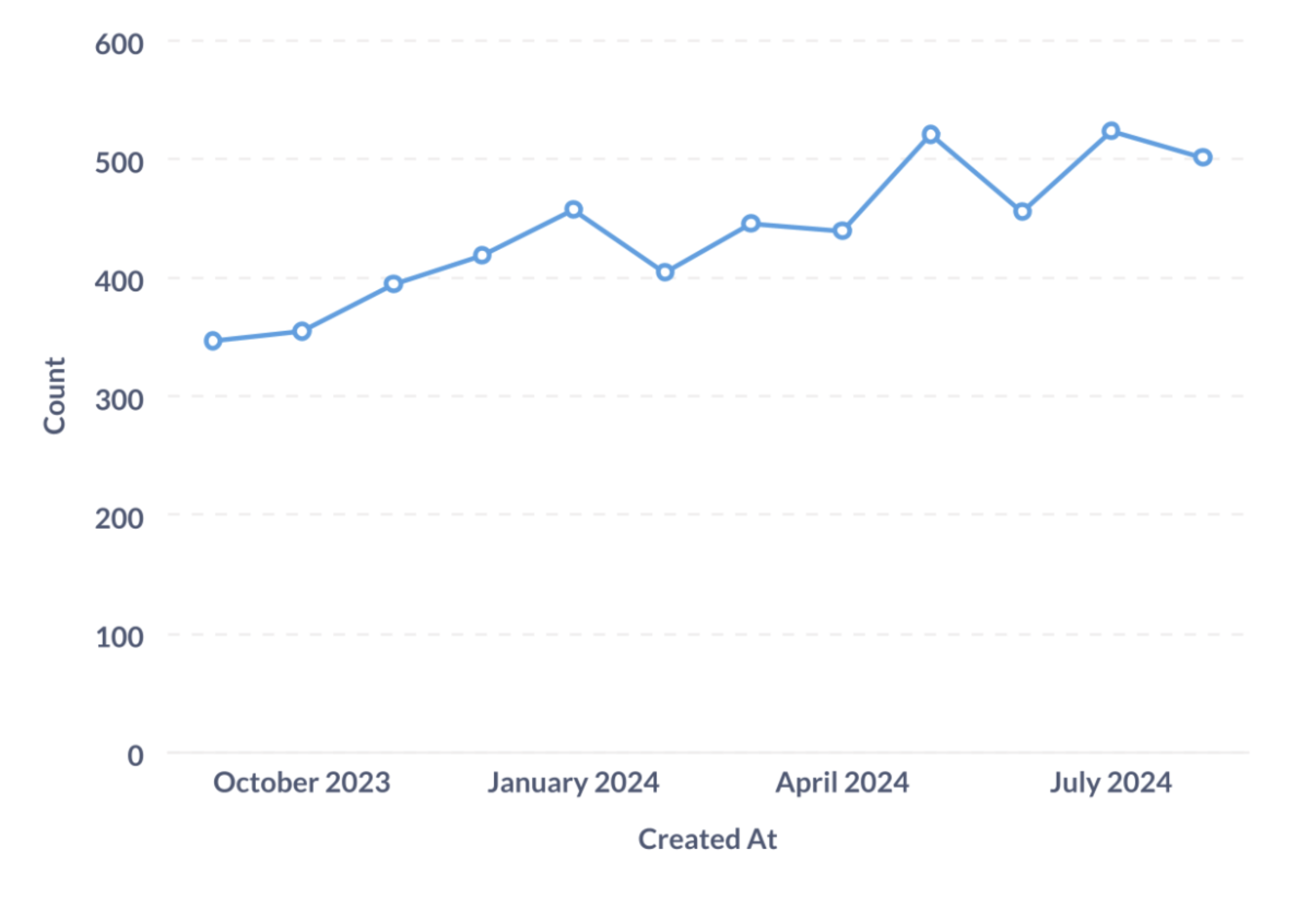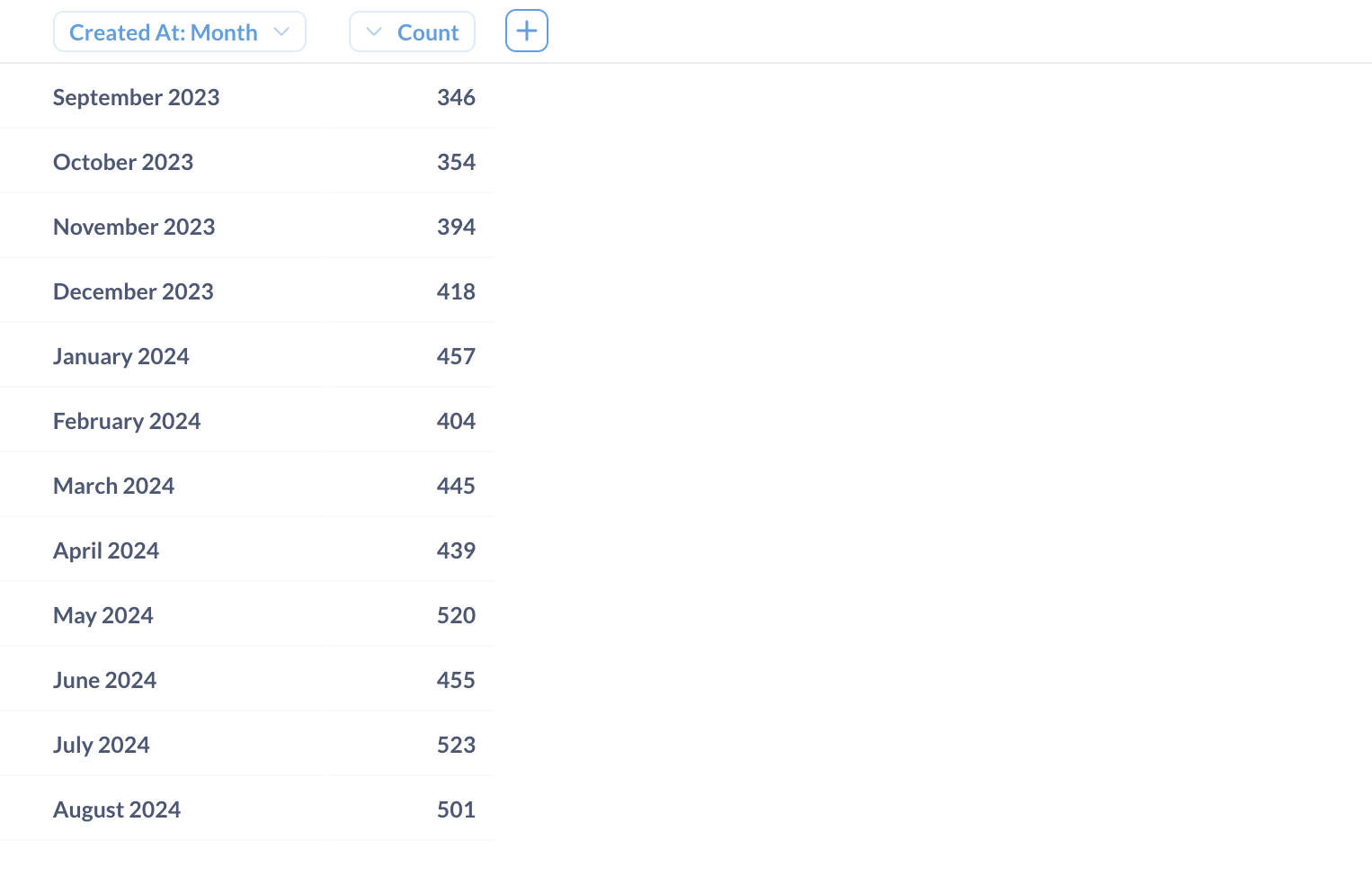These are the docs for the Metabase master branch. Some features documented here may not yet be available in the latest release. Check out the docs for the latest version, Metabase v0.54.
Webhooks
Admins can set up webhooks so that people can send alerts to a particular URL. Which means you can set up an alert to send the results of a question to an endpoint of your choice: to your app, a third-party service, or wherever.
For now, webhooks are only available for alerts; you can’t select a webhook as the recipient of a dashboard subscription.
Creating a webhook
Before you can send an alert to a webhook, an admin will need to create a webhook to target.
Admins can create a webhook by clicking on the gear icon > Admin settings > Notification channels. In the Webhooks for alerts, click + Add another. Metabase will hand you a short form to fill out:
- Webhook URL. Where you want Metabase to send the results of an alert. Must be a valid URL.
- Give it a name. You have to name the webhook so that people can pick the right hook when setting up an alert on a question.
- Description. You should probably tell people what the hook is for.
- Authentication method. See below.
Webhook authentication method
You can specify an auth method for the webhook.
- None: Anything goes.
- Basic: Set a username and password.
- Bearer: Include a secret token.
- API key: You can add the API key to the Header or as a Query param. Both approaches require a key and value (the API key itself).
Webhook payload
Metabase will send the results of an alert in JSON. The JSON will include some metadata about the question, like the alert’s creator and its ID (null in the case of test alerts).
Metabase will send the “attached” visualization as a base64-encoded PNG in the data key, under visualization.

And the data as seen in the table view, which Metabase will send as a raw_data.

Here’s an example payload for an alert (we truncated the PNG encoding because it’s long and extremely boring):
{
"type": "alert",
"alert_id": null,
"alert_creator_id": 2666,
"alert_creator_name": "Roberto Bolaño",
"data": {
"type": "question",
"question_id": 108,
"question_name": "Sales",
"question_url": "http://example.com/question/108",
"visualization": "data:image/png;base64,=...LONG_ENCODED_PNG_HERE...",
"raw_data": {
"cols": [
"CREATED_AT",
"count"
],
"rows": [
[
"2023-09-01T00:00:00Z",
346
],
[
"2023-10-01T00:00:00Z",
354
],
[
"2023-11-01T00:00:00Z",
394
],
[
"2023-12-01T00:00:00Z",
418
],
[
"2024-01-01T00:00:00Z",
457
],
[
"2024-02-01T00:00:00Z",
404
],
[
"2024-03-01T00:00:00Z",
445
],
[
"2024-04-01T00:00:00Z",
439
],
[
"2024-05-01T00:00:00Z",
520
],
[
"2024-06-01T00:00:00Z",
455
],
[
"2024-07-01T00:00:00Z",
523
],
[
"2024-08-01T00:00:00Z",
501
]
]
}
},
"sent_at": "2024-09-30T20:16:15.76582Z"
}
Further reading
Read docs for other versions of Metabase.


